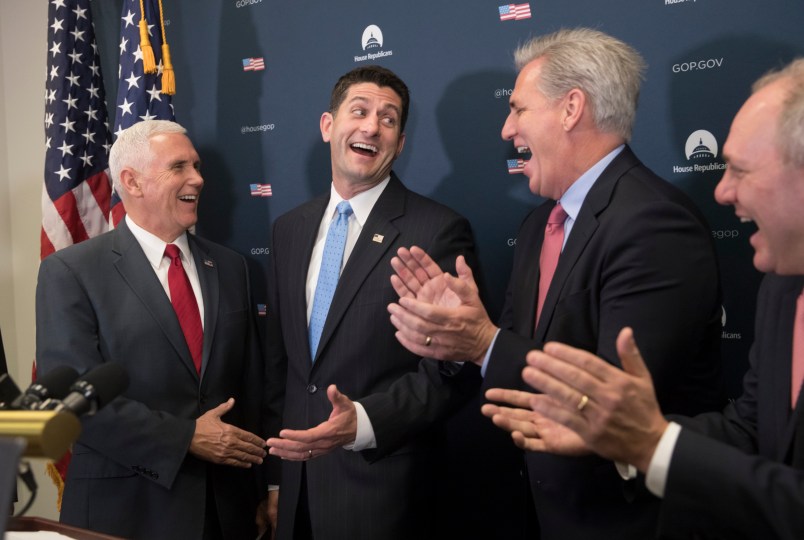The federal government would slash its funding on Medicaid by a quarter — or $880 billion — over the course of 10 years, if the GOP’s overhaul of the program in the American Health Care Act is implemented, according to an analysis released Monday by the Congressional Budget Office.
The cuts would come from a phase out of Obamacare’s Medicaid expansion and a transformation of the overall program into a block grant in the form of per capita caps. As a result, 14 million fewer people will be enrolled in Medicaid by 2026 than would be under current law, the CBO said, shrinking the projected enrollment in the program by 17 percent.
The CBO’s analysis of the proposed cuts to Medicaid will likely inflame the intra-party debate over how to handle the program, particularly as 20 GOP senators represent states that expanded Medicaid under the Affordable Care Act.
Under the Republican legislation, the expansion program would continue as is until the end of 2019, at which point enrollment would be frozen. The feds would continue to provide a generous match rate to those who were grandfathered in, but anyone who lapses in eligibility would not be able to re-enroll.
“CBO projects that fewer than one-third of those enrolled as of December 31, 2019, would have maintained continuous eligibility two years later,” the CBO said. “Under the legislation, the higher federal matching rate would apply for fewer than 5 percent of newly eligible enrollees by the end of 2024, CBO estimates.”
In tabulating its top-line comparisons on Medicaid, the CBO took into account the additional states that it anticipated would have opted into the Medicaid expansion under the current law that had not done so yet.
As for the effect of turning the program into a capped per capita allotment, the CBO pointed out that the average rate of Medicaid spending grows faster than the metric the federal government will use to increase its capped allotments over time.
“With less federal reimbursement for Medicaid, states would need to
decide whether to commit more of their own resources to finance the program at
current-law levels or whether to reduce spending by cutting payments to health care providers and health plans, eliminating optional services, restricting eligibility for enrollment, or (to the extent feasible) arriving at more efficient methods for delivering services,” the report said. “CBO anticipates that states would adopt a mix of those approaches, which would result in additional savings to the federal government.”










